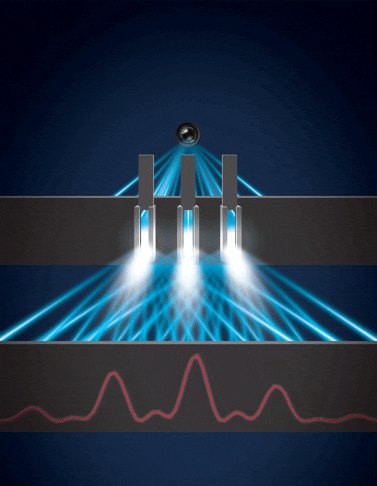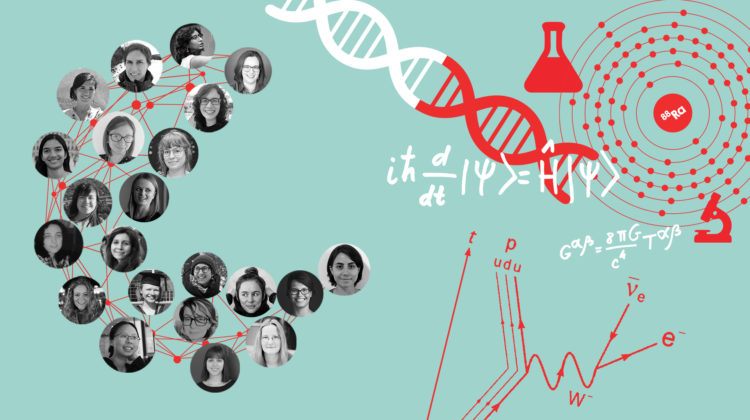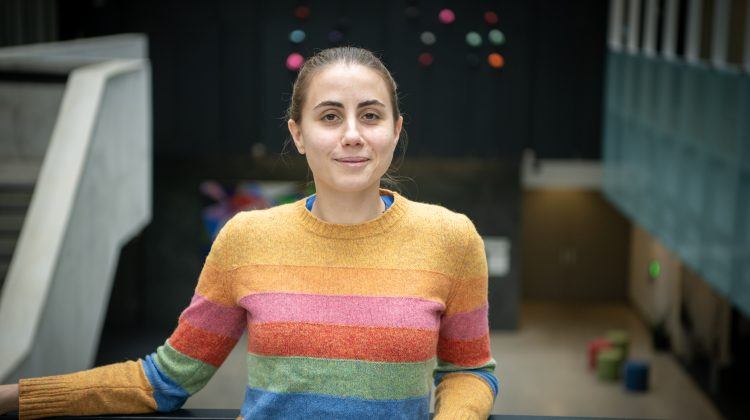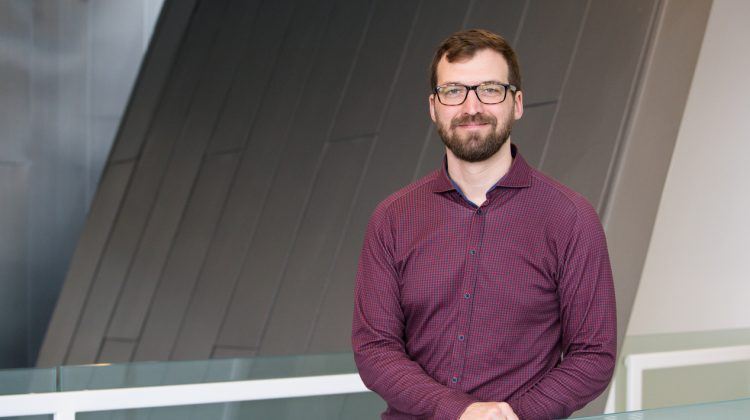PI and IQC Researchers Perform 'Triple Slit' Test of Quantum Mechanics
In an article published in Science, a group including researchers from Perimeter Institute report the results of the most rigorous experimental test to date of Born’s rule, one of the central postulates of quantum mechanics.

In an article recently published in Science, researchers from the Institute for Quantum Computing (IQC), Perimeter Institute (PI), and the University of Innsbruck report the results of the most rigorous experimental test to date of Born’s rule, one of the central postulates of quantum mechanics.
The researchers developed a variation on the famous ‘double slit’ experiment, in which a beam of subatomic particles such as photons or electrons is fired at two closely spaced slits toward a screen. Over many firings, a characteristic wave interference pattern builds up, although the individual particles are sent serially – a puzzling ‘wave-particle duality’ nonetheless predicted by quantum mechanics.
Born’s rule is an axiom of quantum mechanics that defines the probability that a measurement on a quantum system will yield a certain result. In this case it says that the intensity of the wave pattern is calculated bysquaring the sum of the waves that travel through each of two slits. This squaring rule implies that quantum interference is limited to pairs of paths (or pairs of mutually exclusive spacetime alternatives more generally) and conversely if interference is found to be restricted to pairs of alternatives then a version of Born’s rule must hold.
But what would happen in the case of more than two slits? Would some qualitatively new phenomenon arise? In 1994, PI researcher postulated that a generalized version of quantum mechanics might allow multipath (i.e., higher-order) interference, and a similar possibility showed up in the work of PI researcher Lucien Hardy in 2001. If multipath interference were to be found, Born’s rule would not suffice to calculate interference patterns correctly, and it would imply the need for a major revision of quantum theory.
The researchers put Sorkin’s idea to the test by devising a ‘triple slit’ experiment, sending individual photons through three slits to see if what was observed matched the predictions of quantum theory. They sent photons through the three possible two-slit configurations, repeated the measurements with one slit open at a time, and with all three slits open (and with all three closed to establish a baseline). In this situation, a simple and very general equation expresses the essence of Born’s rule: the sum of the 3-slit, 2-slit, 1-slit and 0-slit interference patterns, taken with alternating signs, must vanish! The experimental results confirmed this to within 1%.
The results affirm the predictions of quantum mechanics, while opening up new avenues for probing quantum mechanics at still higher degrees of precision. One of the paper’s authors, PI Associate Faculty member and IQC Director , stressed the fundamental importance of the experiment as part of the ongoing quest for a unified theory of quantum mechanics and gravity, one of the central goals of theoretical physics today.
According to Dr. Sorkin, “Many physicists believe that a successful marriage of gravity with quantum field theory will entail changes to quantum mechanics, but no one knows how radical a revision will be needed. This experiment tells us that, to the accuracy achieved so far, nature is satisfied with the two-slit type of interference we already know, and does not exhibit new forms of interference involving three or more alternatives.”
According to the paper’s lead author, IQC postdoctoral fellow Urbasi Sinha, follow-up experiments involving different ways to create three path interference using different set-ups are planned. According to Dr. Sinha, “These are exciting days. So much time and effort is being invested in coming up with a theory of quantum gravity that it is very important to do precise tests of the postulates of quantum mechanics before you can proceed towards possible generalizations.”
Further Reading:
– “Ruling Out Multi-Order Interference in Quantum Mechanics”, Urbasi Sinha, Christophe Couteau, Thomas Jennewein, Raymond Laflamme, Gregor Weihs, Science, 23 July 2010: Vol. 329. no. 5990, pp. 418 – 421. DOI: 10.1126/science.1190545
– “The Challenge of Quantum Reality”, PI’s educational resource on quantum mechanics and the double slit experiment
























































































